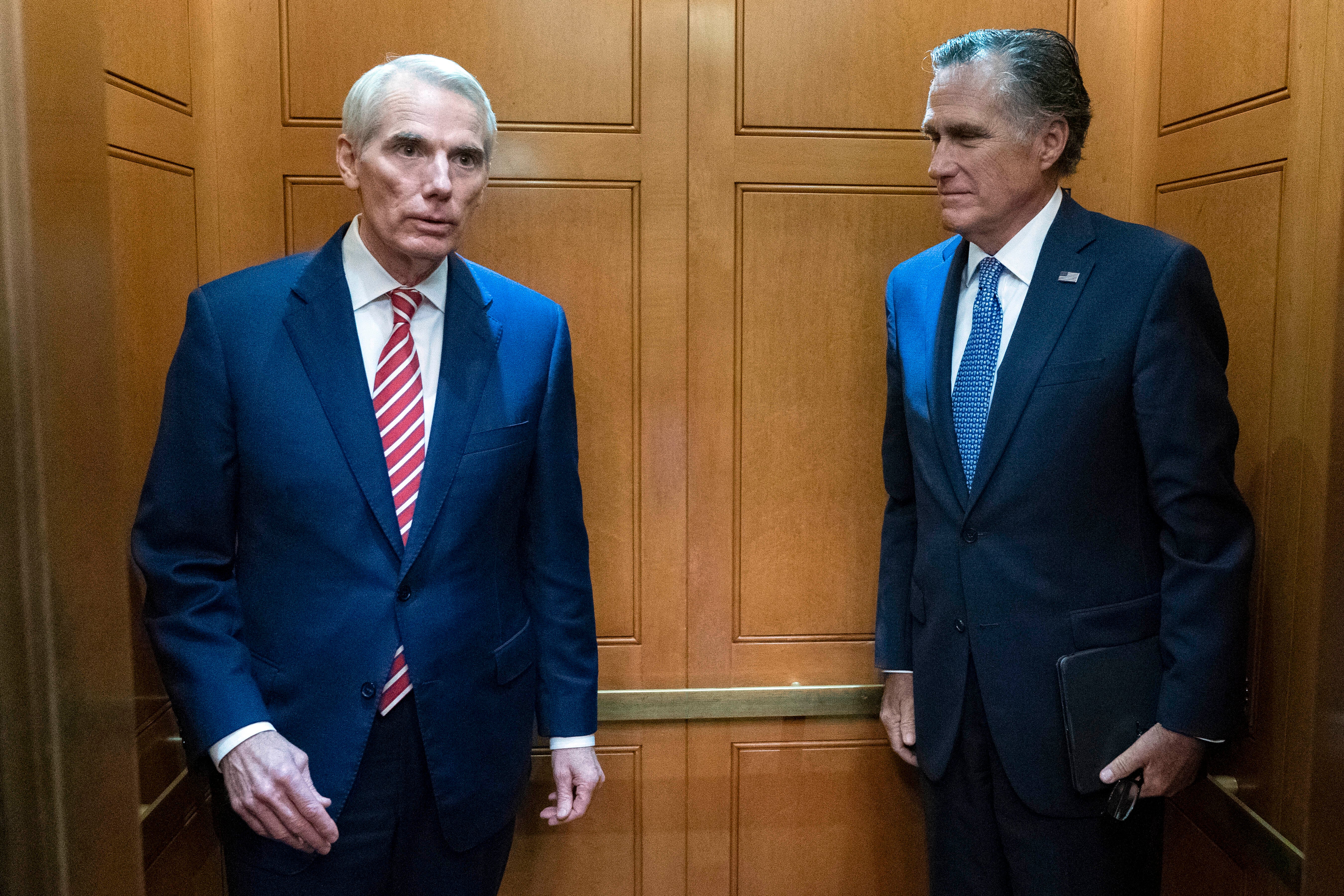Senators race to overcome final snags in infrastructure deal
Lawmakers racing to seal a bipartisan infrastructure deal early this coming week are hitting a major roadblock over how much money should go to public transit

Lawmakers racing to seal a bipartisan infrastructure deal early this coming week are hitting a major roadblock over how much money should go to public transit, the group’s lead Republican negotiator said Sunday.
As discussions continued through the weekend, Ohio Sen. Rob Portman said both sides were “about 90% of the way there” on an agreement.
“We have one issue outstanding, and we’re not getting much response from the Democrats on it,” he said. “It’s about mass transit. Our transit number is very generous.”
Senate Majority Leader Chuck Schumer D-N.Y., has said he wants to pass a bipartisan package and an accompanying $3.5 trillion budget plan before the Senate leaves for its August recess. He held a procedural vote last week to begin debate on the broad framework, but all 50 Senate Republicans voted against it, saying they needed to see the full details of the plan.
Democrats want to see more of the money in the roughly $1 trillion infrastructure agreement go toward boosting public transportation, which include subways, light-rail lines and buses, in line with President Joe Biden’s original infrastructure proposal.
The bipartisan group originally appeared to be moving toward agreement on more money for transit before an objection by Pennsylvania Sen. Pat Toomey the top Republican on the Senate Banking, Housing and Urban Affairs Committee which oversees public transit. He cited, in part, previous COVID-19 federal relief money that had already been allocated to public transit.
“Nobody’s talking about cutting transit,” Toomey said Sunday. “The question is, how many tens of billions of dollars on top of the huge increase that they have already gotten is sufficient? And that’s where there is a little disagreement.”
Typically, spending from the federal Highway Trust Fund has followed the traditional formula of 80% for highways and 20% for transit. Republicans including Toomey want to change that, but Democratic Sens. Sherrod Brown of Ohio and Tom Carper of Delaware say they will oppose the deal if it does.
The White House has declined to say whether Biden would push for the additional funding for transit.
“Transit funding is obviously extremely important to the president — the ‘Amtrak President,’ as we may call him,” White House press secretary Jen Psaki said Friday. “But we believe that members can get this work done and can work through these issues quite quickly.”
The final package would need the support of 60 senators in the evenly split 50-50 Senate to advance past a filibuster -- meaning at least 10 Republicans along with every Democratic member. Last week’s test vote failed along party lines.
Democrats also are seeking to hammer out a compromise to pay for the package after Republicans dashed a plan to boost the IRS to go after tax scofflaws, but Virginia Sen. Mark Warner, a Democratic negotiator in the group, said he remains optimistic about reaching a deal soon.
“We’re down to the last couple of items, and I think you’re going to see a bill Monday afternoon,” Warner said Sunday.
Three rounds totaling nearly $70 billion in federal COVID-19 emergency assistance, including $30.5 billion that Biden signed into law in March, pulled transit agencies from the brink of financial collapse as riders steered clear of crowded spaces on subway cars and buses. That federal aid is expected to cover operating deficits from declining passenger revenue and costly COVID-19 cleaning and safety protocols through at least 2022.
But Democrats and public transit advocates see expanded public transit systems as key to easing traffic congestion, combating climate change and curbing car pollution.
Rep. Peter DeFazio, D-Ore., the chairman of the House Transportation and Infrastructure Committee, recently sent a letter with 30 Democrats on the panel warning that the Senate proposal was inadequate and that any deal should incorporate the House-passed $715 billion infrastructure bill, which includes more money for rail and transit.
“The historical share for public transit from the Highway Trust Fund is 20%,” Paul Skoutelas, president of the American Public Transportation Association said Sunday. “It is the absolute minimum acceptable level to help sustain our nation’s public transportation systems. It is imperative that we make robust, forward looking investments to modernize and expand public transit that will assist in our economic recovery from the COVID pandemic and get Americans back to work.”
Portman appeared on ABC’s “This Week,” Toomey was on CNN’s “State of the Union” and Warner spoke on “Fox News Sunday.”
Bookmark popover
Removed from bookmarks